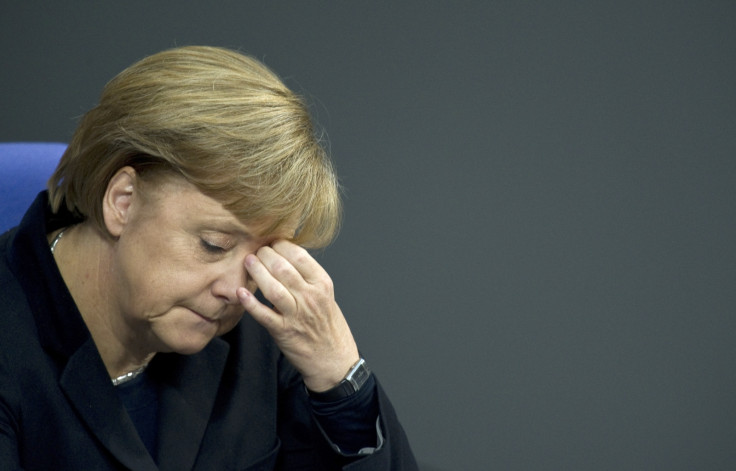Germany officially pushing Greece's Syriza to break election promises on debt and austerity

A new document has revealed that Germany wants Greece's left wing Syriza to renege on the very promises that got the party elected and go back to the economic policies set in stone by the European Commission, the European Bank and the International Monetary Fund – dubbed the Troika.
According to a document seen by Reuters, Germany prepared the remarks for a meeting of senior eurozone finance officials later this week, that include stressing that Greece must not cut back on austerity measures, which were agreed to be carried out in the exchange of emergency bailout cash.
The document warned that rolling back on cuts and reforms to the public sector would damage the trust the country had built with the markets.
"The Eurogroup needs a clear and front-loaded commitment by Greece to ensure full implementation of key reform measures necessary to keep the programme on track," said the German document, as quoted by Reuters.
"The aim is the perpetuation of the agreed reform agenda (no roll back of measures), covering major areas as the revenue administration, taxation, public financial management, privatisation, public administration, health care, pensions, social welfare, education and the fight against corruption."
Promises that could be broken

Greece voted in left-wing Syriza party last month after the anti-austerity party promised voters that half the country's debt would be written off.
In 2010, Greece started to receive drip-fed tranches of a €240bn (£179bn, $271bn) bailout from the Troika after racking up record levels of debt.
The country had to significantly cut public sector jobs, make reforms to its tax, pensions and overall economy, in order to receive the emergency payments.
Greece still has to negotiate its final bailout tranche of €7.2bn, however talks may become difficult as the new government has already begun to scale back austerity measures.
At the beginning of this year, Eurostat revealed that Greece still remains the worst affected by the eurozone crisis with 25.7% of its population out of work, while nearly 50% of young people in the country are jobless.
However, the country still has a debt of around 175% of gross domestic product, worth €315bn, despite some creditors already writing down billions of euros in debt three years ago.
Ongoing talks

Meanwhile, on 31 January, German Chancellor Angela Merkel unequivocally ruled out any more debt cancellations.
The document adds that Germany would like Greece "to reach a primary budget surplus before interest payments of 3% of GDP in 2015 and 4.5% in 2016" and lower the minimum wage, reduce general government employment by 150,000, and implement pension reforms".
Greece's current bailout programme ends on 28 February.
However, on 4 February, Greek Prime Minister Alexis Tsipras voiced his confidence over Athens' attempts to reduce its debt without causing greater pain through austerity measures.
"I'm very optimistic that we will try to do our best in order to find a common, viable and mutually acceptable solution for our common future," he said after the meeting with European leaders on Wednesday (4 February).
"Our goal is to respect the people's sovereignty in Greece and the clear mandate of our people. At the same time we respect the rules of the European Union. We want to recorrect this framework, not to smash this framework and we believe that in this framework we could find a common viable solution."
© Copyright IBTimes 2025. All rights reserved.






















